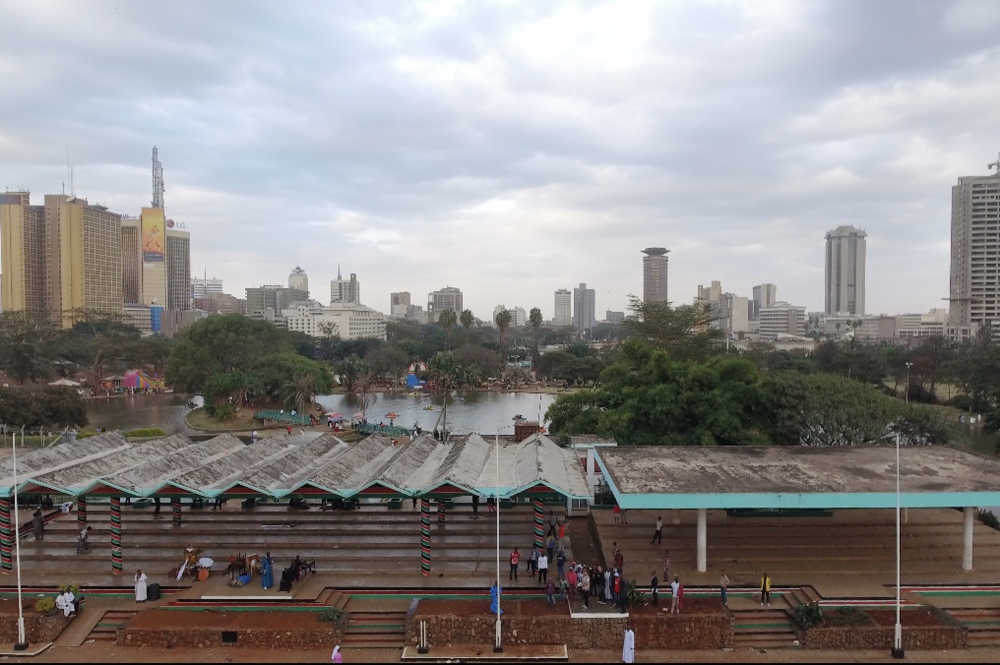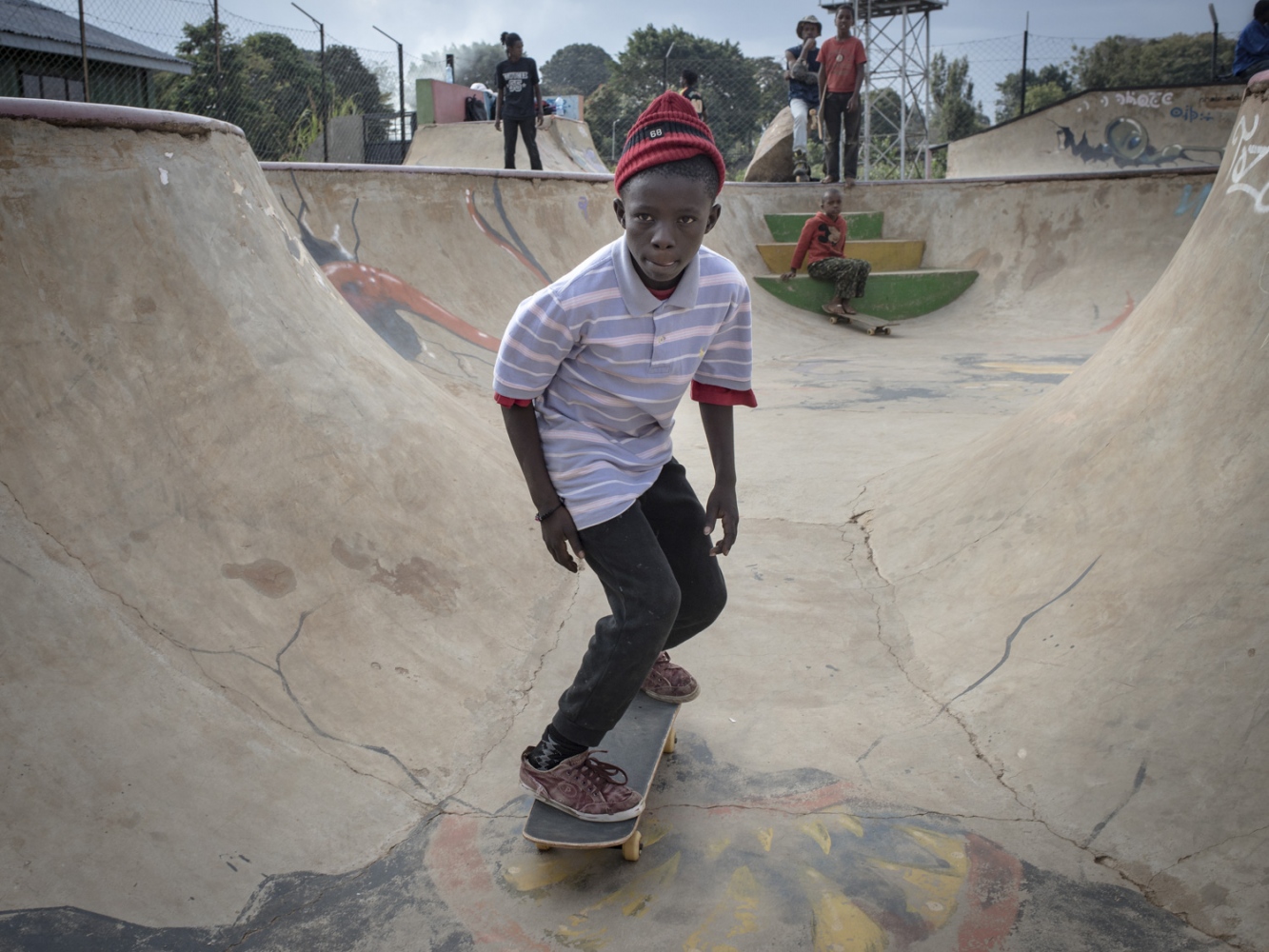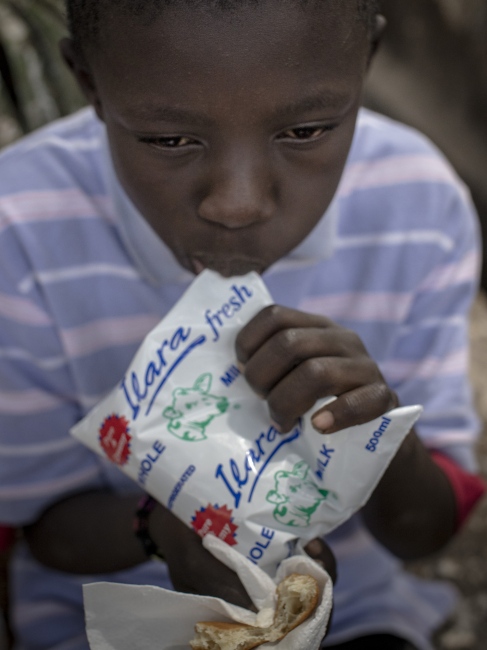Public Project
Survival through Skateboarding
With a loud crack, skateboard wheels hit the rough asphalt. The sound is quickly lost amid the cacophony of the evening rush hour in Nairobi, as the core of Kenya's skateboard scene head out into the night for a skate session. Their destination is the parking lot between the highrises and office buildings of Aga Khan Walk. A spot that doubles as a nightly resting place for many of the boys. Ezra Nyanguesa, aged 11 and known to his friends as Balo, is one of them.
Balo has been homeless for three years. One February morning, his mother left him and his 15-year old sister at their home in the Kitale slums. When they called her, she was in Mombasa, 500 kilometers away.
“I don’t have the money to support the two of you,” she said bluntly. “Now you are on your own.”
Balo and his sister found what little money was left in the tiny apartment. Their father had died in 2013, and now they had to leave the house, as they would not be able to afford the rent. Balo’s sister was not able to take care of him either. At just eight years-old, he was left to fend for himself on the streets of Nairobi.
While homeless, he met the street kid Mwangi. Four years older than Balo, Mwangi quickly became a friend who could comfort him and share the life experience that his own family had failed to provide him with. Mwangi was like a brother to Balo. And it was Mwangi who introduced Balo to skateboarding, which quickly became their means of survival.Three years later, Balo is one of Kenya's biggest skateboard talents.
“When I am skateboarding, I feel good. I forget that I am hungry and homeless.”
Balo speaks in short, thoughtful sentences. He looks into the distance for a moment and quietly says: “To keep skateboarding is the only thing I dream of. And to go to school and have a home like a completely normal boy.”
On the way back to Aga Khan Walk, the boys are on foot. In the Central Business District, which is flooded with suit-and-tie folk during the day, Balo reaches into pocket. He takes out a single coin, which he gives to a blind man begging on the sidewalk.
“God bless you my child,” the man says. The monotonous sound of car horns and traffic pierces the evening air, and the skate rats jump back on their boards, reaching Aga Khan Walk. The parking lot is the size of a football field. Pieces of trash blow silently across it like tumbleweed.
In a corner of the lot, laughter breaks the silence as a girl botches an attempt to jump over a broken plastic barrel on her skateboard. At least 20 skaters are gathered here tonight. Balo stands among his friends, looking on. Next to him, two young boys each stand starry-eyed holding an old bottle of Coke to their mouths, inhaling the milky glue vapours from inside it. Balo’s eyes are fully fixed on the skateboards zigzagging across the vacant lot. Soon after, he joins the other skaters for another usual evening for the street kids of Nairobi.
“On the streets, you do not have many options. Most of the kids are either sniffing glue or stealing. But not us skaters. When you are skateboarding, you must stay sharp. I do not want to sniff or steal, I just want to skate,” Balo says.
Balo does not have his own skateboard. It was stolen more than a year ago, and now he has to borrow one from the older boys, who also help him to get clothes and food. Balo owns next to no possessions. The street kids are robbed regularly or chased away by local security guards, from the corner of this lot where they sleep each night. Balo says the guards often threaten him and his friends with violence or imprisonment, whenever they find them. Each night they go to sleep not knowing if a guard will wake them violently.
The time approaches ten in the evening at Aga Khan Walk, and only four kids are left with a single skateboard. The rest of the group have gone home to their families and beds. Balo, Mwangi and their two friends remove a piece of tarpaulin that's suspended between two old trees. Behind it is a small cave, not more than a couple of meters wide and lined with cardboard and rocks. inside lie pair of shoes, a hat and a single blanket. And soon after, concealed by the plastic and the cardboard, four sleeping boys lie there as well.
12,279







